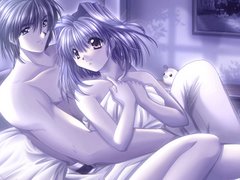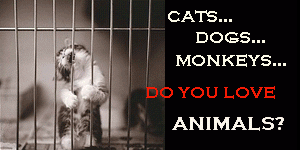Question about Writing
I have to know this. It's, of course, a matter of preference, but just indulge me: when writing or imagining a spanking scene, what's your favorite moment:
- the set-up of the scene, with the 'chat' before the spanking and the ritual of getting undressed, etc;
- the spanking itself;
- the aftermath, with its mixed feelings - the wrap-up, in other words.
Then I might see a bit of the spanking scene - which tells me the implement, the location, and the way the characters will react during the spanking.
When I am pleased with the two things above, I look for what might have caused the incident. Sometimes I see the incident before I see any of the above, but usually I start with the moment the person gets caught get handed.
The ending plays itself naturally while I write and many times I change my mind as I write along. Sometimes - like the next day - I remember I wanted to add extra dialog or an extra scene somewhere and I go back to it. But that happens rarely since I usually write and post the story the same day.
And while I'm writing, I am constatly seeing the next scene. I write for what will follow. And my energy is extremely high until I reach the spanking itself. This is where I pause for a long time. Writing the spanking is not coming that naturally to me. In my eyes, there isn't much place for playing here. It kills the fun. In how many ways can you describe the way the belt falls, the pain, the tears, the cries? A scene describing a spanking is of no interest to me even when I read a spanking story - I need the dialog. I need to see the spanking, hear it, smell it even. I guess I am the visual generation. It has to do with the setting too - I like stories which are set in modern families; I am not attracted in the slightest to the Victorian times, etc.
I also like writing the ending. But by the time I reach this point I am exhausted.
Sometimes I look for words to describe what I see and what I feel; sometimes I find them, sometimes I don't. To make the connection between your brain and your words work you need a lot of reading and writing and then more reading and more writing. If I don't read (a book, I mean) for two weeks, I already feel that something is seriously wrong with my writing. Even so, I go on until I finish the story.
Then there are those states of mind when everything unwrappes smoothly and each piece finds its place in the puzzle of the story. If I am tired, I can't reach this state.
And I write best when I am not tired, obviously, either early in the morning, or late at night.
What about you?




















5 comments:
Hmm, my favorite moment... that's tough. I might change my answer depending on the phase of the moon, or before or after the one cup of coffee I allow myself each day. I don't have an extensive background of writing to draw from, but enough to see some patterns.
When I'm writing, I think the set-up of the scene is usually, but not always, where my initial focus is, and that provides the fuel that gets the story moving ...or stalling if the vehicle runs out of gas. The spanking itself, and after, is likely only as meaningful as the characters that have been created, and the situation they're in. Like you, I sometimes reach the action of the spanking, which is typically the climax of the story, and find it tedious to write ...and yet, the specific kinds of details involved are very important in my attraction to the whole thing to begin with.
There are many different aspects of a spanking scenario that intrigue me, and my favorite moment in a scene could happen anywhere. Maybe every scene is a bit different, relying on the characters and where the spanking fits in the story. For most characters, the interaction between spanker and spankee is the most fun or interesting -- for some, not as much. My focus may be on a specific aspect or consequence of a spanking, shoving some otherwise favored moments into the background or out of the picture entirely. For a shorter story, a set-up needs to happen with economy and with much implied; for a long story, a spanking scene is a relatively brief moment, and there's much space to make it all more meaningful if I can keep the thing from getting boring. I haven't written a series of stories with the same character, but there you can rely on things established from previous chapters. I don't always tell a story in linear fashion, thus changing the dynamics.
Because I write much about "discipline," the cause of the incident is a major factor, and yet finding reasons is often difficult for me. It seems most have been used to death, or what I manage looks too contrived. If the reason is compelling, it can be the thread the story hangs by. If not, it becomes incidental, and my focus is elsewhere. Like you, I much prefer settings I can relate to more closely, and I tend to stay away from other periods of time.
Hugs,
Eric
Key, I think that the characterisation of the principles is very important.
Then the extent of the punishment will make or break the story for me, punishments that no one can live through damn the story for me.
Finally I like a sense of closure, either forgiveness, or love making.
In discipline stories it's necessary to have a believable offence, between lovers, the spanking is the thing, not much more is needed.
Does this help?
Love and warm hugs,
Paul.
I think i'm most intrigued, perhaps, by the build-up in a story...the classic threats, the stern scolding, the pouting, the pleading for another chance, etc.
Dave
'the cherry
red report'
Hey guys! :) Thanks for sharing and for satisfying my curiosity. :) Hugz! :)
Greaat reading your blog
Post a Comment